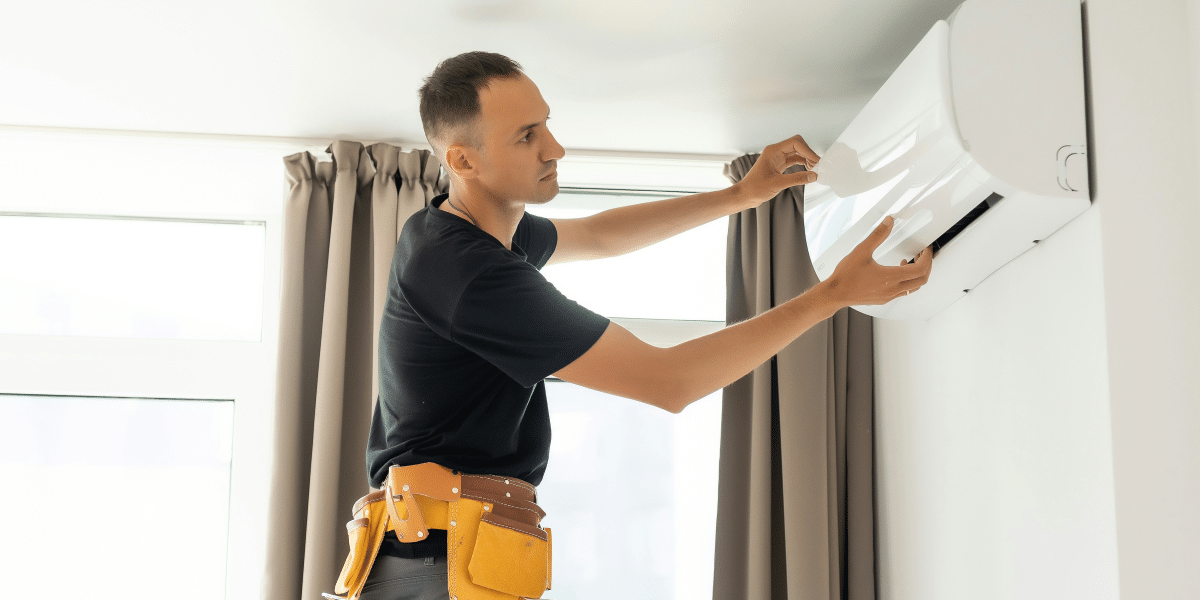By: SEO Mavens
The arrival of summer and rising temperatures make it imperative to have a working air conditioner in order to keep your home pleasant. Like any other appliance, air conditioners can develop issues over time. You may save time and money by being aware of the frequent problems and knowing when to get professional assistance. This article will walk you through typical issues, how to fix an air conditioner, and when to hire professionals.
Understanding Common Air Conditioner Problems
Air conditioners are complex machines with multiple components that need to work together seamlessly. Here are some common issues that you might encounter:
1. Refrigerant Leaks: The refrigerant in your air conditioner is responsible for cooling the air. If there is a leak, the unit will not cool properly and can even stop working. Refrigerant leaks can also be harmful to the environment.
2. Dirty or Clogged Filters: Air filters play a vital role in maintaining air quality and system efficiency. Over time, filters can become clogged with dust and debris, restricting airflow and reducing the unit’s efficiency.
3. Frozen Evaporator Coils: If the evaporator coils freeze, it can cause the air conditioner to malfunction. This issue is often due to restricted airflow or low refrigerant levels.
4. Faulty Thermostat: The thermostat controls the temperature settings of your air conditioner. If it is not working correctly, it can cause the unit to run constantly or not turn on at all.
5. Electrical Issues: Problems with the electrical components, such as capacitors or wiring, can prevent the air conditioner from functioning properly. These issues can be dangerous and require professional attention.
Expert Insights from Superior HVAC Service
To provide a deeper understanding of air conditioner repair, we consulted with the specialists at Superior HVAC Service https://superiorhvacservice.ca/. According to their experts, regular maintenance is key to preventing many common issues. “Routine inspections and timely maintenance can significantly extend the lifespan of your air conditioner and improve its efficiency,” they explain.
The experts also emphasize the importance of addressing problems early. “If you notice any unusual noises, reduced cooling efficiency, or increased energy bills, it’s crucial to get your unit checked immediately. Ignoring these signs can lead to more serious and costly repairs down the line,” says a representative from Superior HVAC Service.
They also highlight the importance of using quality parts for repairs. “Using OEM (Original Equipment Manufacturer) parts ensures compatibility and longevity. While cheaper alternatives might save money initially, they often result in more frequent breakdowns and additional costs in the long run.“
DIY Troubleshooting Tips
While some air conditioner repairs require professional expertise, there are a few troubleshooting steps you can take before calling in the experts:
1. Check the Thermostat Settings: Ensure that the thermostat is set to the correct temperature and mode. Sometimes, simple adjustments can resolve the issue.
2. Replace or Clean Filters: If your air conditioner isn’t cooling properly, check the filters. Cleaning or replacing th3em can improve airflow and efficiency.
3. Inspect the Circuit Breaker: If your air conditioner won’t turn on, check the circuit breaker to ensure it hasn’t tripped. Resetting the breaker might solve the problem.
4. Clear the Area Around the Unit: Ensure that there is no debris or obstructions around the outdoor unit. This can improve airflow and prevent overheating.
5. Check for Ice: If you notice ice on the evaporator coils, turn off the air conditioner and allow it to thaw. Once the ice has melted, check for potential causes, such as dirty filters or low refrigerant levels.
When to Call a Professional
While DIY troubleshooting can resolve minor issues, certain problems require professional attention. Here are some scenarios where you should call an expert:
1. Refrigerant Leaks: Handling refrigerants requires specialized knowledge and equipment. Professionals can safely repair leaks and recharge the system.
2. Electrical Issues: Electrical repairs can be dangerous. It’s best to leave these to qualified technicians who can diagnose and fix the problem safely.
3. Compressor Problems: The compressor is a critical component of the air conditioner. If it fails, the entire system can be compromised. Professional repair or replacement is essential.
4. Persistent Problems: If you’ve tried troubleshooting but the issue persists, it’s time to call in the experts. They can perform a thorough inspection and identify the root cause of the problem.
Preventive Maintenance Tips
To avoid frequent repairs and extend the lifespan of your air conditioner, consider implementing these preventive maintenance tips:
1. Schedule Regular Inspections: Have a professional inspect your air conditioner at least once a year. They can identify and fix potential issues before they become major problems.
2. Clean the Unit: Regularly clean the outdoor unit to remove dirt, leaves, and debris. This helps maintain proper airflow and efficiency.
3. Replace Filters Regularly: Depending on usage, replace or clean the filters every 1-3 months. This simple step can significantly improve the unit’s performance.
4. Check and Seal Ducts: Leaky ducts can reduce efficiency and increase energy costs. Periodically check and seal any leaks to ensure optimal performance.
5. Monitor Refrigerant Levels: Low refrigerant levels can cause the unit to work harder, leading to increased wear and tear. Have a professional check and recharge the refrigerant if needed.
To sum up, you can keep your air conditioner operating smoothly and efficiently by knowing the fundamentals of repair and when to call a professional. By adhering to the advice and suggestions provided by the professionals at Superior HVAC Service, you can guarantee a cool and comfortable atmosphere all summer long.
Published by: Holy Minoza


















